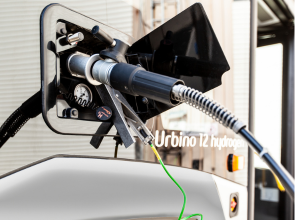Trucking fleets plan to invest in hydrogen vehicles: Survey
Fleet companies have begun investing in electric and hydrogen-powered vehicles and expect to continue to do so in the next few years.

Leaders of the largest US trucking fleets are moving forward with planning and investment in fleets powered by sustainable fuels, according to a new survey released today by TravelCenters of America Inc.
The survey was released as part of a new white paper from eTA, TA’s sustainability business unit, called “Sustainable Fuels in Trucking: The Greening of America’s Trucking Industry.” This white paper, the first in a series about the trucking industry’s transition to sustainable fuels and TA’s role in that process, identifies the key challenges the industry is facing and the support it will need from federal and state governments to be successful.
Jon Pertchik, Chief Executive Officer of TravelCenters of America, said, “With the current range of EV and hydrogen-powered heavy-duty trucks, fleet leaders want to see a substantial number of available fast-charging and/or refuelling stations before making larger investments in new vehicles.”
TA plans to be a leader in providing EV charging stations and hydrogen refuelling for trucks at its over 275 travel centres as the industry adopts these sustainable fuels.
Key survey findings include:
- One in five companies responding to the survey already has some electric vehicles in their fleet.
- About half expect to have electric vehicles in their fleet by 2030.
- Most responding companies anticipate EV trucks will make up 11%-25% of their fleet by 2030.
- Only 5% of fleets responding have hydrogen vehicles in their fleets today, but this number will likely increase to nearly 25% of fleets by 2030.
- 9% of responding fleets currently have CNG (compressed natural gas) vehicles, with very few anticipating they will make up a larger percentage of their fleets by 2030.
- Few responding companies seem interested in vehicles powered by RNG (renewable natural gas) or LNG (liquified natural gas).
Trucking fleet leaders also look to TA to lead in providing sustainable fuels so they can plan their own investments around TA locations that will provide alternative energy resources in the future.
